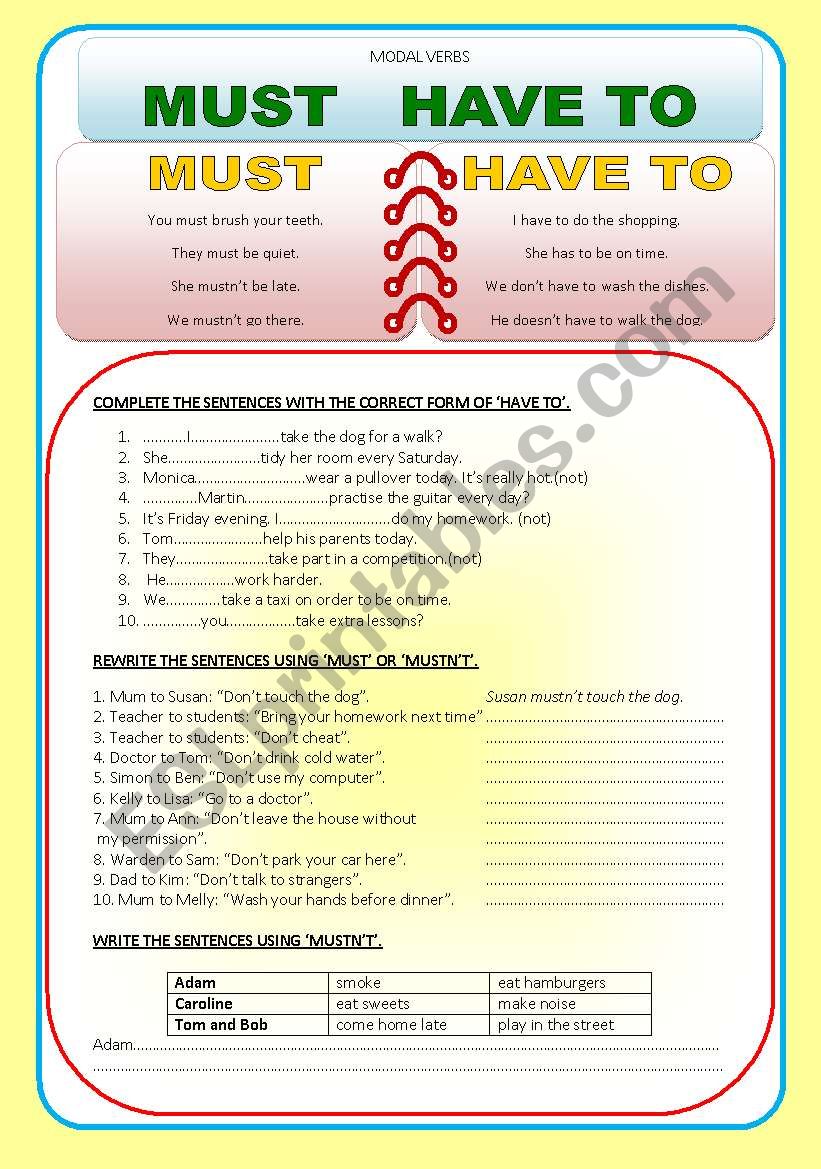
May he come to your party? No, he must not. My sister can juggle.Ĭan you come? Sorry, I cannot. CAN - MAY - MUST (können - dürfen - müssen) Um andere Zeiten auszudrücken, müssen wir Ersatzformen anwenden. Daher können wir sie nur in der Gegenwart verwenden. Diese modal verbs haben keine Mitvergangenheit (außer can) und kein past participle (3. must have We use must have + past participle when we feel sure about what happened. This page focuses on making deductions about the past. Complete these sentences with must, mustnt or the correct or the correct form of have to. The modal verb we choose shows how certain we are about the possibility. Die am häufigsten verwendeten Hilfszeitwörter sind can, may und must. Grammar explanation We can use modal verbs for deduction guessing if something is true using the available information. Sie werden auch verwendet um Anfragen und Angebote zu machen. Para la deducción negativa o imposibilidad usaremos "can't".Modalverben (modal verbs), auch Hilfszeitwörter genannt, sind Verben, die Notwendigkeit, Fähigkeit, Erlaubnis und Möglichkeit ausdrücken. En cambio, " don't have to" indica que algo no es necesario, es decir, que no existe obligación (también se puede expresar con "need not/needn't").ģ Con significado de deducción afirmativa. La forma negativa, " must not" expresa una prohibición. La diferencia con "have to" es que "must" se usa para dar órdenes o expresar una obligación moral de la persona que habla u ordena y "have to" indica que la obligación viene de normas externas, una tercera persona o de una circunstancia.

This page focuses on making deductions about the past. ❻uscas clases de ingles? ¡Apúntate a Superprof!ġ Para expresar obligación, deber moral o consejo.ĭebes estar de vuelta antes de medianoche. We can use modal verbs for deduction guessing if something is true using the available information. Para otros tiempos verbales (por ejemplo, el futuro) se puede emplear " to have to". No tiene tiempos compuestos ni progresivos. No necesita añadir el auxiliar do/does para la forma interrogativa y negativa. La tercera persona del singular no lleva -s en el presente simple. Va seguido de un verbo en infinitivo sin "to", excepto be able to, need to, have to y ought to.


 0 kommentar(er)
0 kommentar(er)
